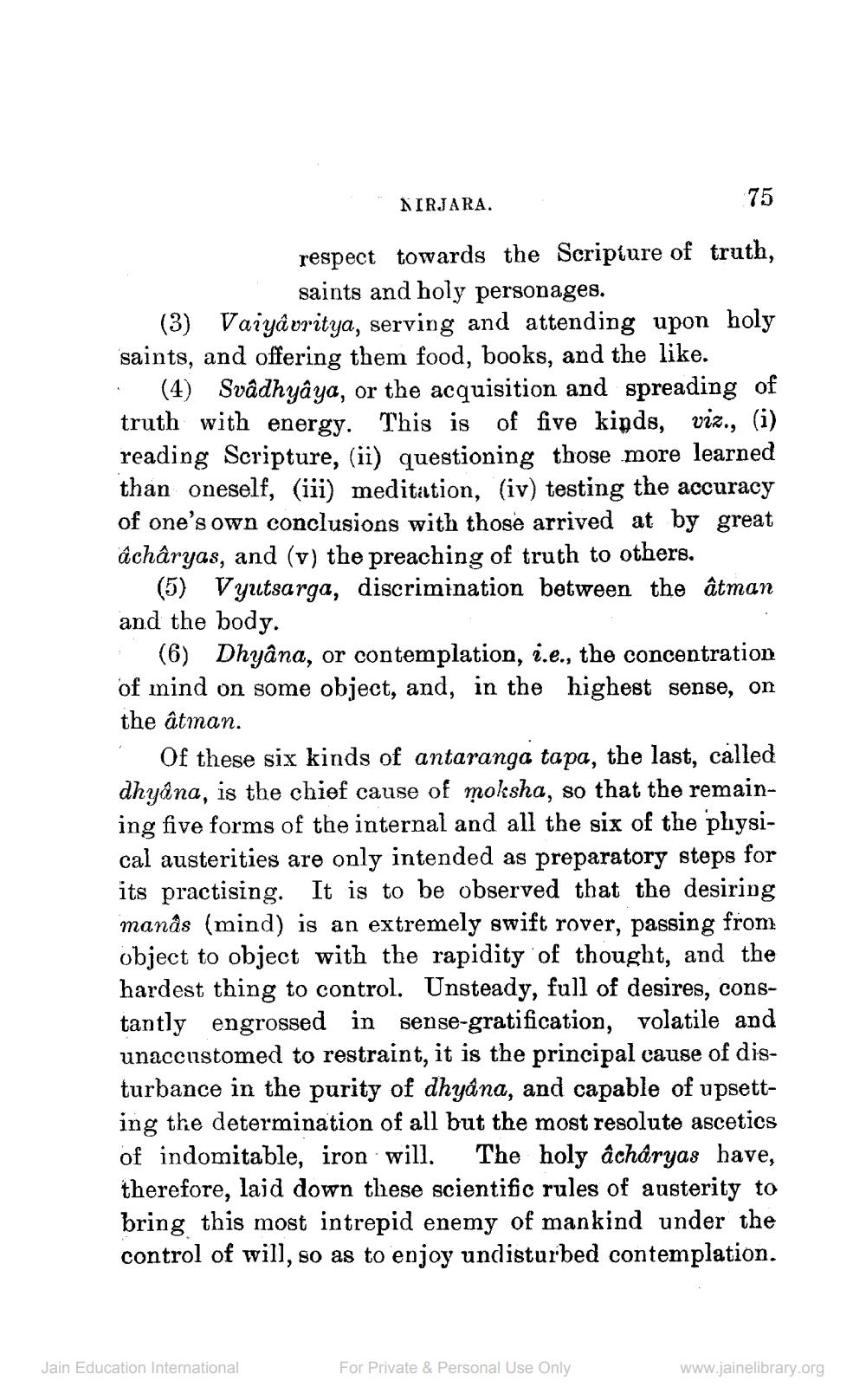________________
"MIRJARA.
75
respect towards the Scripture of truth,
saints and holy personages. (3) Vaiyâvritya, serving and attending upon holy saints, and offering them food, books, and the like.
(4) Svadhyâya, or the acquisition and spreading of truth with energy. This is of five kipds, viz., (i) reading Scripture, (ii) questioning those more learned than oneself, (iii) meditation, (iv) testing the accuracy of one's own conclusions with those arrived at by great åchâryas, and (v) the preaching of truth to others.
(5) Vyutsarga, discrimination between the âtman and the body.
(6) Dhyana, or contemplation, i.e., the concentration of mind on some object, and, in the highest sense, on the âtman.
Of these six kinds of antaranga tapa, the last, called dhyâna, is the chief cause of moksha, so that the remaining five forms of the internal and all the six of the physical austerities are only intended as preparatory steps for its practising. It is to be observed that the desiring manâs (mind) is an extremely swift rover, passing from object to object with the rapidity of thought, and the hardest thing to control. Unsteady, full of desires, constantly engrossed in sense-gratification, volatile and unaccustomed to restraint, it is the principal cause of disturbance in the purity of dhyána, and capable of upsetting the determination of all but the most resolute ascetics of indomitable, iron will. The holy acharyas have, therefore, laid down these scientific rules of austerity to bring this most intrepid enemy of mankind under the control of will, so as to enjoy undisturbed contemplation.
Jain Education International
For Private & Personal Use Only
www.jainelibrary.org




